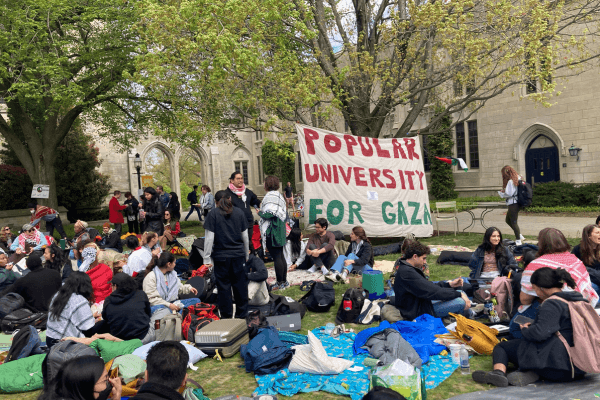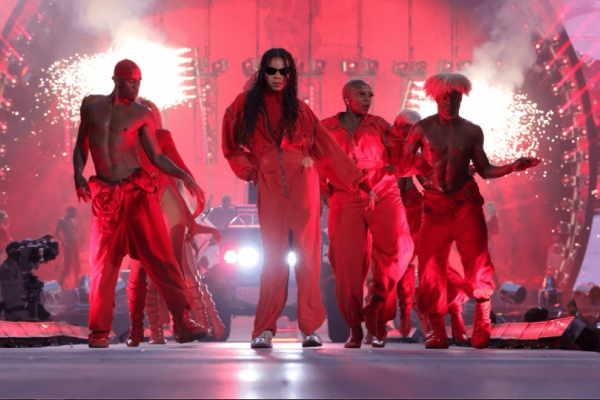Last week the African American Policy Forum held its third annual summer school for scholars to discuss and develop anti-racism efforts in the United States. This year, AAPF dedicated a portion of its programming to “Keeping the Faith,” an exploration of Christianity and critical race theory.
From the Southern Baptist Convention to conservative Christian universities and colleges, white Christians have led efforts to oppose anti-racist analysis of systemic oppression in the U.S., under the guise of resisting “critical race theory.”
“I really don’t think you can understand this current movement of opposition to critical race theory, and especially the way that it's come up in state legislatures … without understanding the role that Christian nationalist ideologies play in passing those bills,” said summer school speaker Tiffany Puett, executive director for the Institute for Diversity and Civic Life.
But antagonism isn’t the only story of faith and CRT. As summer school speakers explained, people of faith have long been at the forefront of developing and using the insights of critical race theory in their efforts to love their neighbors.
“If we’re going to be a people who are participating in Christ’s good work of setting the captives free and preaching good news to the poor, we have to say, ‘Who are these people? Who are we? And what are the racialized lines that are connected to things like poverty, environmental racism, et cetera?” Nathan Luis Cartagena, a Wheaton professor and speaker at the summer school, told Sojourners. “CRT would really help us here … We really need to retrieve this important piece of the kingdom of God and retrieve the ability to analyze the societies that we inhabit and how those societies are running counter to the kingdom.”
AAPF was founded in 1996 by Kimberlé Crenshaw and Luke Charles Harris, two leading scholars on critical race theory, a theory developed to explain the preservation of systemic racism in the post-civil rights era. Crenshaw, who is AAPF’s executive director, also popularized the term “intersectionality,” which describes how prejudices and systemic oppressions overlap.
The summer school, held virtually between July 18-22, included daily 90-minute “Keeping the Faith” sessions planned by Bradly Mason, who has studied the interactions of Christians and critical race theory since 2018. Christian scholars, authors, and academics spoke on the history of white Christian nationalist backlash to CRT, the psychology of white evangelicals’ resistance to anti-racism, and the role of Black and brown faith communities in forming anti-racist movements.
“It seems very clear to me that, in order to unwind the failures of the American church … [it] requires us to see [racism as a] formative error and sin in the development of the United States,” Mason told Sojourners.
Mason said he first connected with Crenshaw in 2018, and their relationship deepened in 2021 as the two discussed then-President Donald’s Trump’s executive order on CRT and the Christian backlash to the theory that had prompted it.
“I really, very much hope that from events like this, Christians can begin to see CRT and related race scholarship as a helpful tool for doing kingdom work, and not in an oppositional manner,” Mason said.
Over the past year, defenders of CRT have tried to point out that so-called “anti-CRT” bills don’t properly define critical race theory. But Puett said the people behind these bills are often white Christian nationalists who aren’t concerned with understanding CRT anyway.
“[White Christian nationalists are] inherently opposed to recognizing structural oppression, and structural racism as a huge part of structural oppression, in this country,” Puett said.
Instead, Puett believes progressive Christians need to learn from the history of liberation theology in developing their theological language to account for systemic sin, or sin that needs to be addressed by the collective community.
Theologian Jeff Liou and historian Robert Chao Romero highlighted the compatibility of Christianity and CRT, and how faith traditions informed the development of CRT.
Speaking about CRT from a faith perspective is “a form of witness,” Liou said, a way to publicly repent of how Christians have maligned anti-racist efforts and instead highlight God’s faithfulness to people who have been marginalized.
“I want the academy to hear that there are Christian communities that have thought about the themes that they care so much about and who share some of the critiques of more problematic streams of Christianity,” Liou told Sojourners.
For Romero, speaking at the summer school reminded him there are many Christians “deeply involved in the trenches of racial justice work.”
“A lot of times, rightfully so, it’s easy to feel really isolated,” Romero said. “Christianity is oftentimes viewed as just the ‘white man’s colonizer religion.’ And this conference shows that’s not true … they developed a whole week of events around faith. On the flipside, the colonial, white evangelical [belief] that CRT is antithetical to the gospel, that’s certainly not true.”
Christina Edmondson, co-host of the podcast Truth’s Table and co-author of Faithful Antiracism, spoke about the psychological mechanism of white Christian resistance to anti-racism.
“What does it mean that some people’s theological heroes [were] perfectly comfortable owning, selling, and force-breeding other people’s theological heroes? Jonathan Edwards and George Whitfield versus Harriet Tubman,” Edmondson told Sojourners before her session. “That shapes and misshapes people to have a Christianity that tolerates racial subjugation and Indigenous genocide.”
Cartagena spoke at the final session Friday on teaching CRT to white evangelicals.
Before his presentation, he told Sojourners he planned to discuss how hard it can be for Christians from historically white institutions to reckon with the role that white supremacy has played within church global history. He also said he would discuss his own journey within historically white Christian institutions.
“One of the important things for those who are going to be proponents of CRT to reckon with is just how hard it’s going to be for people — if they’re coming from historically white institutions — to come to a deep understanding of the role that white supremacy has played within church’s global history,” Cartagena said. “[And] secondly, [CRT proponents need to] see how some of that is also connected to the anti-CRT movement.”
The “Keeping the Faith” panelists said they enjoyed the opportunity to discuss the nuances of Christianity, anti-racism, and critical race theory among other scholars. They said it was an opportunity both to correct the unfaithful witness of Christians who slander critical race theorists and to deepen understandings of faith in the U.S.
“It is a part of our Christian duty to not caricature and slander our neighbor, but to do the act of learning, which is an expression of Christian love,” Edmonson said.
Got something to say about what you're reading? We value your feedback!







